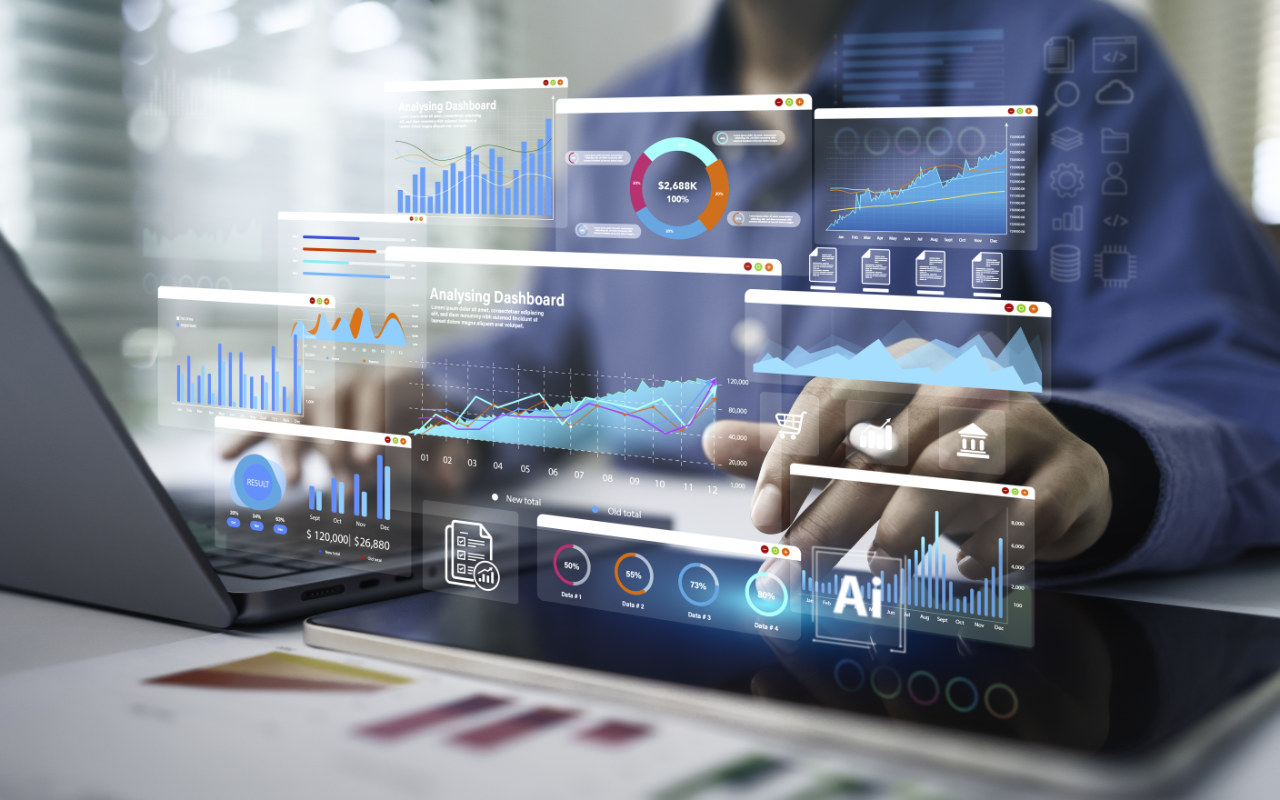
GenAI Changes Everything: Why Information Sharing is the New Data Monetization Frontier
As GenAI transforms how businesses consume data, traditional raw data sharing becomes obsolete. Companies must strategically control what they expose publicly and monetize processed intelligence through secure APIs to capture the trillion-dollar AI economy.
The GenAI Data Revolution is Here
McKinsey's latest research reveals a staggering truth: companies that successfully monetize their data through AI generate 11% of their revenue from data products—over five times more than their competitors. But here's what most organizations are missing: GenAI isn't just changing how we use data, it's fundamentally reshaping what data is worth.
The old playbook of selling raw datasets or building static analytics dashboards is dead. As McKinsey notes, 'owning the most data is no longer the ultimate competitive advantage. Data alone is increasingly seen as a commodity. Intelligence, on the other hand, is emerging as the new currency.'
This shift creates an urgent strategic imperative: businesses must rethink not just how they monetize data, but what they expose to the world in the first place.
The Great Data Exposure Problem

Every day, businesses unknowingly feed the AI economy for free. When you publish market insights, customer analysis, or operational data on public websites, you're essentially providing free training material for your competitors' AI models.
The data brokerage model McKinsey describes is facing a 'multidirectional squeeze': prices are falling as raw data becomes commoditized, access is tightening under regulatory pressure, and synthetic data can now deliver comparable performance at lower cost and risk.
The Irony: Companies invest millions in data analytics and insights, publish them publicly for SEO, then watch as AI models trained on that content compete against them in the marketplace.
The Scale: By 2026, three-quarters of businesses will use GenAI to create synthetic customer data. Your carefully curated datasets are training the systems that will replace your market position.
The Opportunity Cost: Every insight published openly is intelligence that could have been monetized directly to AI model developers, chatbot providers, or enterprise customers.
Information Sharing: The Strategic Response

The solution isn't to hoard data—it's to strategically control how intelligence flows to AI systems. McKinsey's research shows companies are moving 'from data resale to intelligence-driven business building' by creating AI-powered platforms that deliver personalized content and enable real-time decision-making.
This requires a fundamental shift in content strategy:
Selective Publication: Keep high-value insights behind secure APIs rather than public web pages. Publish only generic content that builds authority without revealing competitive intelligence.
Intelligence-as-a-Product: Instead of selling raw datasets, offer processed insights through APIs that integrate directly into AI workflows and business applications.
Dynamic Monetization: Use real-time pricing models that capture value based on the business outcomes your intelligence enables, not just data volume.
How GenAI Transforms Data Value

McKinsey identifies two transformative shifts that GenAI enables in data monetization:
Unlocking Unstructured Data: More than 90% of organizational data is unstructured—documents, images, communications. GenAI can 'clean, analyze, and productize unstructured data quickly,' turning isolated signals into strategic intelligence.
Turning Data into Action: Modern data products don't just provide insights—they deliver 'decision-ready intelligence' that accounts for specific context and automatically generates personalized recommendations.
The implication is profound: companies with sophisticated information sharing capabilities can offer AI systems exactly what they need—contextual, processed intelligence—rather than forcing AI models to derive insights from raw data.
As McKinsey notes, this creates 'a virtuous cycle of innovation, expanding the frontier of what is possible with data and intelligence.'
The Three-Stage Information Monetization Journey
Based on McKinsey's research, organizations following a strategic information sharing approach evolve through three distinct phases:
Stage 1 - Internal Optimization: Use GenAI internally to improve decision-making and automate processes. This generates the baseline intelligence that becomes monetizable.
Stage 2 - Selective Monetization: Begin offering processed insights through secure APIs to partners and customers. Focus on high-value use cases where intelligence creates measurable business outcomes.
Stage 3 - Intelligence Marketplace: Build entire businesses around information products, embedding processed intelligence directly into AI systems and business workflows.
Companies that treat this as 'an enterprise-wide capability, not merely a bolt-on technology' create monetization opportunities at every step—from data acquisition to model training to intelligent delivery.
Early Winners: Learning from Success
McKinsey highlights Walmart's Scintilla platform as a prime example of intelligent data monetization. Rather than selling raw shopper data, Walmart created an AI-powered intelligence platform that delivers actionable insights to suppliers.
The results speak for themselves:
• Revenue Growth: 173% year-on-year customer growth
• Customer Retention: 100% renewal rate with 3+ year commitments
• Product Evolution: Launched AI-powered 'Insights Activation' that turns insights into automated, real-time recommendations
Walmart succeeded because they didn't just sell data—they sold intelligence. Their platform processes massive shopper datasets into specific, actionable recommendations that suppliers can't get anywhere else.
This demonstrates the power of information sharing over data sharing: processed intelligence commands premium pricing and creates sustainable competitive advantages.
Building Your Information Sharing Strategy
McKinsey's research identifies six foundational elements for building AI-enabled data businesses. Here's how to apply them to information sharing:
1. Strategy & Product: Identify your unique data advantages and build information products around them. Focus on intelligence that only you can provide.
2. Go-to-Market: Implement flexible pricing models—usage-based, outcome-based, or adaptive tiers that evolve with customer needs.
3. Technology: Build scalable, cloud-native architectures that can handle both structured and unstructured data in real-time.
4. People: Develop teams that blend technical expertise with commercial thinking and product ownership.
5. Operations: Create the operational infrastructure to scale from experimental products to full businesses.
6. Capital: Plan for the capital intensity of AI-powered data businesses, including ongoing model training and infrastructure costs.
The Intelligence Economy is Coming
McKinsey envisions 'a future where self-learning data assets continuously adapt to market needs, gen AI agents orchestrate cross-industry data syndication, and marketplaces exist where AI agents negotiate, price, and deliver data to customers.'
In this future, traditional volume-based pricing gives way to value-based data trading—where information is valued for the outcomes it drives, not just its size or scope.
Companies that continue relying on raw data sales or static analytics risk being 'outpaced by AI-native challengers that are building data businesses designed from the ground up for intelligence delivery.'
The question isn't whether this transformation will happen—it's whether your organization will lead it or be disrupted by it.
Start Building Your Information Moat Today
The GenAI revolution demands a new approach to data monetization. Smart companies are already moving beyond selling raw data to building sustainable information sharing businesses.
The first step is simple but critical: audit what intelligence you're giving away for free through public web publishing. Then design secure API strategies that let you monetize that intelligence directly.
As McKinsey concludes, 'Intelligence, not data, is emerging as the new currency.' Companies that understand this shift—and build information sharing capabilities now—will capture disproportionate value in the AI economy.
The choice is yours: continue feeding the AI economy for free, or start building the information products that will define the next decade of business competition.



